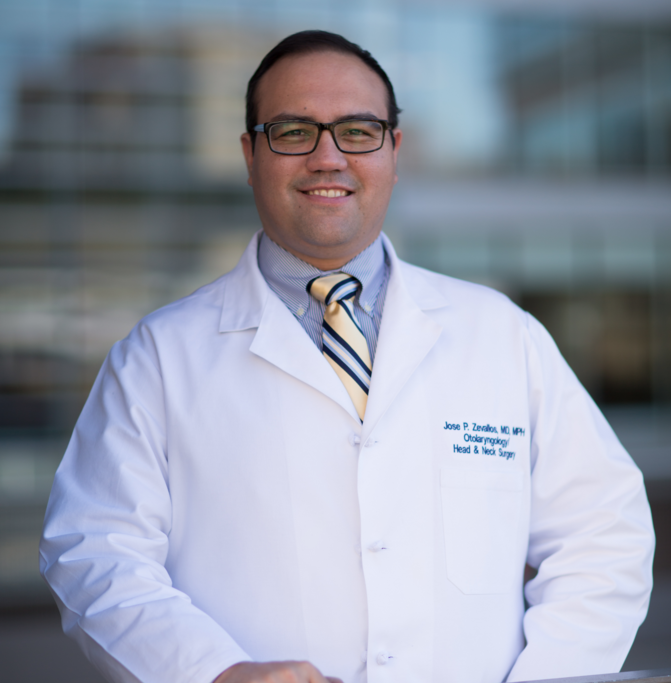Researchers at UNC Lineberger Comprehensive Cancer Center have presented preliminary findings from a study examining the genetic alterations in HPV-positive oropharyngeal squamous cell carcinoma, a cancer of the head and neck. The researchers found differences in the genetic mutations of HPV-positive oropharyngeal cancer based on whether patients were heavy versus light smokers.

Both smoking and HPV infection – the most commonly transmitted sexually transmitted disease – are risk factors for an increasingly common type of throat cancer. In a new study, UNC Lineberger researchers have found that distinct genetic mutation patterns emerge in people with HPV-positive oropharyngeal squamous cell carcinoma who are heavy versus light smokers.
Preliminary findings from the study, presented Thursday at the 2016 Multidisciplinary Head and Neck Cancer Symposium, could help inform treatment decisions for people with HPV-positive oropharyngeal squamous cell carcinoma and a smoking history.
“Our major finding was that basically not all HPV-positive oropharyngeal cancers are created equal at a genetic level,” said José P. Zevallos, MD, MPH, FACS, an associate member of UNC Lineberger, assistant professor and director of oncologic research in the UNC School of Medicine Department of Otolaryngology/Head and Neck Surgery, and an adjunct assistant professor in the UNC Gillings School of Global Public Health.
“When we stratify patients with HPV-positive cancer by how much they smoke, we notice that patients who smoke less than 10 years have different mutations than patients who smoke more.”
Studies have shown that patients with HPV-linked oropharyngeal squamous cell carcinoma respond better to treatments and live longer than patients with HPV-negative cancer. The finding has led researchers to investigate whether they can still achieve a cure for HPV-positive oropharyngeal cancer patients while lowering the intensity of their radiation and chemotherapy treatment.
But Zevallos and his team want to establish mutational profiles of HPV-positive oropharyngeal cancer that could be used to better stratify patients’ risk and inform treatment decisions.
“We know that HPV-positive oropharyngeal cancer patients have excellent prognoses,” Zevallos said “Because of that excellent prognoses, there has been a lot of work around the country to create treatment protocols that are less intensive. Our study aimed to come up with a molecular criteria based on genomic mutations to better stratify their risk.”
The researchers used next-generation sequencing to analyze genetic mutations in 66 HPV-positive oropharyngeal cancer patients, who were also categorized into groups based on smoking history. Patients were stratified based on whether they had smoked more or less than 10 pack years, which would be equivalent to one pack of cigarettes a day for 10 years.
They found that disease-free and overall survival were better in the less than 10-pack year group, and differences in the frequency of mutations and copy number variation between the two groups based on smoking history.
Mutations in genes such as TP53, CDKN2A, KRAS and NOTCH1 almost exclusively showed up in the more than 10 pack-year group, while HLA-A mutations were almost exclusively in lighter smoking group.
“What we notice is that there is a series of mutations that are exclusively found in patients who are heavy smokers, and a unique mutation in the HPV-positive non-heavy-smokers,” Zevallos said.
Zevallos that the findings indicate that physicians could be taking more into account than HPV status when considering whether to reduce the intensity of a patients’ treatment.
“We’re laying the groundwork for clinical trials that define candidacy for treatment de-intensification based on mutations,” Zevallos said. “Our goal should be when we see an HPV-positive patient in the clinic, we don’t automatically assume that patients will do very well,” he added.
“We should use other criteria beyond HPV status to more effectively personalize their treatments.”
The preliminary findings were presented during the K. Kiang Ang Commemorative Plenary Session at the Multidisciplinary Head and Neck Cancer Symposium in Scottsdale, Ariz., on Thursday. The symposium is sponsored by the American Society for Radiation Oncology, the American Society of Clinical Oncology, and the American Head & Neck Society.
In addition to Zevallos, other authors included: E. Yim of the UNC Department of Otolaryngology/Head and Neck Surgery; P. Brennan of the International Agency for Research on Cancer in Lyon, France; A.Y. Liu of the UNC Gillings School of Global Public Health; J.M. Taylor of the UNC Department of Otolaryngology/Head and Neck Surgery; M. Weissler of UNC Hospitals; D. Anantharaman of the International Agency for Research on Cancer in Lyon; B. Abedi-Ardekani of the International Agency for Research on Cancer in Lyon; A.F. Olshan of UNC Lineberger and the Gillings School of Global Public Health; and N.N. Hayes of the UNC School of Medicine.
